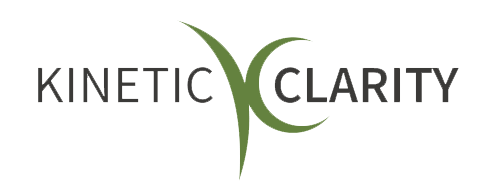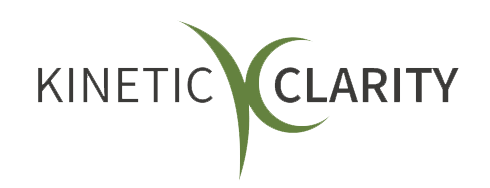Cultivating Courage in the Workplace
What is Courage?

When we think of courage, we often imagine acts of heroism or bravery in extreme situations. However, courage isn’t just reserved for the battlefield or the emergency room. In fact, courage is an essential quality for success in the workplace, and cultivating everyday bravery is crucial for organizations that want to thrive in today's fast-paced and rapidly changing business environment.
So, let’s explore what workplace courage is, why organizations need it, and how they can cultivate it.
What is Workplace Courage?
Courage is the ability to confront fear, pain, danger, or uncertainty. This can take many forms in the workplace, including:
- Speaking up: voicing concerns, offering constructive criticism, or challenging the status quo
- Risk-taking: trying new approaches, experimenting with new ideas, or taking on new responsibilities
- Standing up for what's right: advocating for ethical behavior, addressing misconduct, or reporting wrongdoing
- Asking for help: seeking guidance, support, or resources when needed
- Admitting mistakes: acknowledging errors, taking responsibility, and learning from failures
Being courageous requires making oneself vulnerable. It’s about being comfortable exposing your fears and then confronting them. It requires admitting when you were wrong or when you don’t know something. This isn’t a comfortable feeling.
People don’t generally like feeling exposed, but if business leaders can get comfortable with that, it can transform their leadership and make them stronger and more approachable to their team.
Why Organizations Need Courage in the Workplace
Courage is essential for organizations that want to thrive in an ever-changing business environment. It can affect many areas of business, from innovation and growth to the very morals of the organization.
Building courage and being able to become vulnerable requires strong emotional intelligence (EQ). This is a tremendous indicator of success in business. For example, 90% of the greatest business leaders have high emotional intelligence.
Innovation
Innovation is about pushing boundaries, challenging assumptions, and exploring new ideas. It usually involves trying something that's never been done before or exploring new territory that others may be hesitant to enter. This can be scary, especially if there's a risk of failure or if others may question your approach.
Courageous employees are willing to take risks and try new things, even if they may fail. They're not afraid to challenge the status quo, question assumptions, or push boundaries.
Innovation also requires collaboration and the willingness to share ideas and feedback. This can be uncomfortable for some employees who hesitate to speak up or offer constructive criticism. Courageous employees, however, are willing to share their ideas and listen to other perspectives. They're not afraid to challenge or be challenged; they see feedback as an opportunity to learn and grow.
Growth
To grow and evolve, organizations need to be willing to change and adapt. Courageous leaders and employees can drive change and help organizations overcome obstacles.
Growth involves taking on new challenges and pushing oneself outside of comfort zones. This can be scary and intimidating, especially if you're not successful. Employees can develop new skills and expand their capabilities by embracing the unknown and stepping outside of their comfort zones.
Additionally, courage is vital for growth in the workplace because it fosters a culture of learning and experimentation. Employees who feel empowered to take risks and try new things are more likely to experiment with new ideas and approaches. This can lead to new discoveries, breakthroughs, and innovations that drive growth and success for the organization.
Ethical Behavior
Courage is required to stand up for what's right, even when it's difficult or unpopular. Organizations that lack courage may tolerate unethical behavior or turn a blind eye to misconduct, risking their reputation and long-term success.
Ethical behavior often requires employees to speak up and act when they observe something wrong or unethical. This can be difficult, especially when confronting a colleague or superiors. However, employees with the courage to speak up and report ethical concerns can help prevent misconduct and uphold ethical standards within their organizations.
According to a survey conducted by the Ethics & Compliance Initiative, employees who dare to speak up about ethical concerns are more likely to report misconduct, and organizations with solid reporting cultures have lower levels of misconduct overall.
Of course, ethical behavior requires employees to act with integrity and uphold moral principles, even in the face of pressure or temptation to do otherwise. This requires courage, as resisting temptation or standing up to pressure from colleagues or superiors can be challenging. But employees who dare to act with integrity can help to establish a culture of ethical behavior and morality within their organizations.
By cultivating a culture of courage, organizations can promote ethical behavior and uphold moral principles, which can help to build trust, credibility, and reputation with stakeholders.
The Barriers to Workplace Courage
Barriers to workplace courage can vary depending on the specific context and individuals involved. However, here are some common barriers that can hinder employees from displaying courage in the workplace:
Fear of consequences
One of the primary barriers to workplace courage is the fear of negative repercussions. Employees may worry about the potential risks they could face, such as retribution, punishment, or even job loss, if they speak up or challenge the status quo.
Lack of psychological safety
Psychological safety refers to an environment where employees feel safe to express their opinions, ideas, and concerns without fear of judgment or negative consequences. When psychological safety is lacking, individuals are less likely to exhibit courage and voice their thoughts or take risks.
Organizational culture
The prevailing culture within an organization can significantly impact workplace courage. If the culture discourages dissent, punishes failure, or promotes conformity, employees may be hesitant to speak up or take initiative, limiting their ability to demonstrate courage.
Lack of support
When employees perceive a lack of support from their peers, supervisors, or the organization as a whole, they may be less inclined to display courage. Supportive environments that encourage and recognize acts of courage can help mitigate this barrier.
Overcoming these barriers requires a multi-faceted approach that includes fostering a supportive and inclusive culture, creating psychological safety, providing leadership training, and encouraging open communication channels. Organizations can also recognize and reward acts of courage to reinforce the desired behavior and create an environment where employees feel empowered to take risks and speak up.
Wrapping Up
Cultivating workplace courage is essential for organizations that want to succeed in today's fast-paced and unpredictable business environment. By creating a safe environment for employees to speak up, providing opportunities for employees to practice courage, and leading by example, organizations can build a culture of courage that drives innovation, growth, and ethical behavior.
As a leader, it's your responsibility to create a culture that values and rewards courage. Doing so will empower your employees to take risks, speak up, and make a difference in your organization and beyond. Contact us today to learn how Kinetic Clarity can help you, your leaders, and your organization thrive in the face of change.












